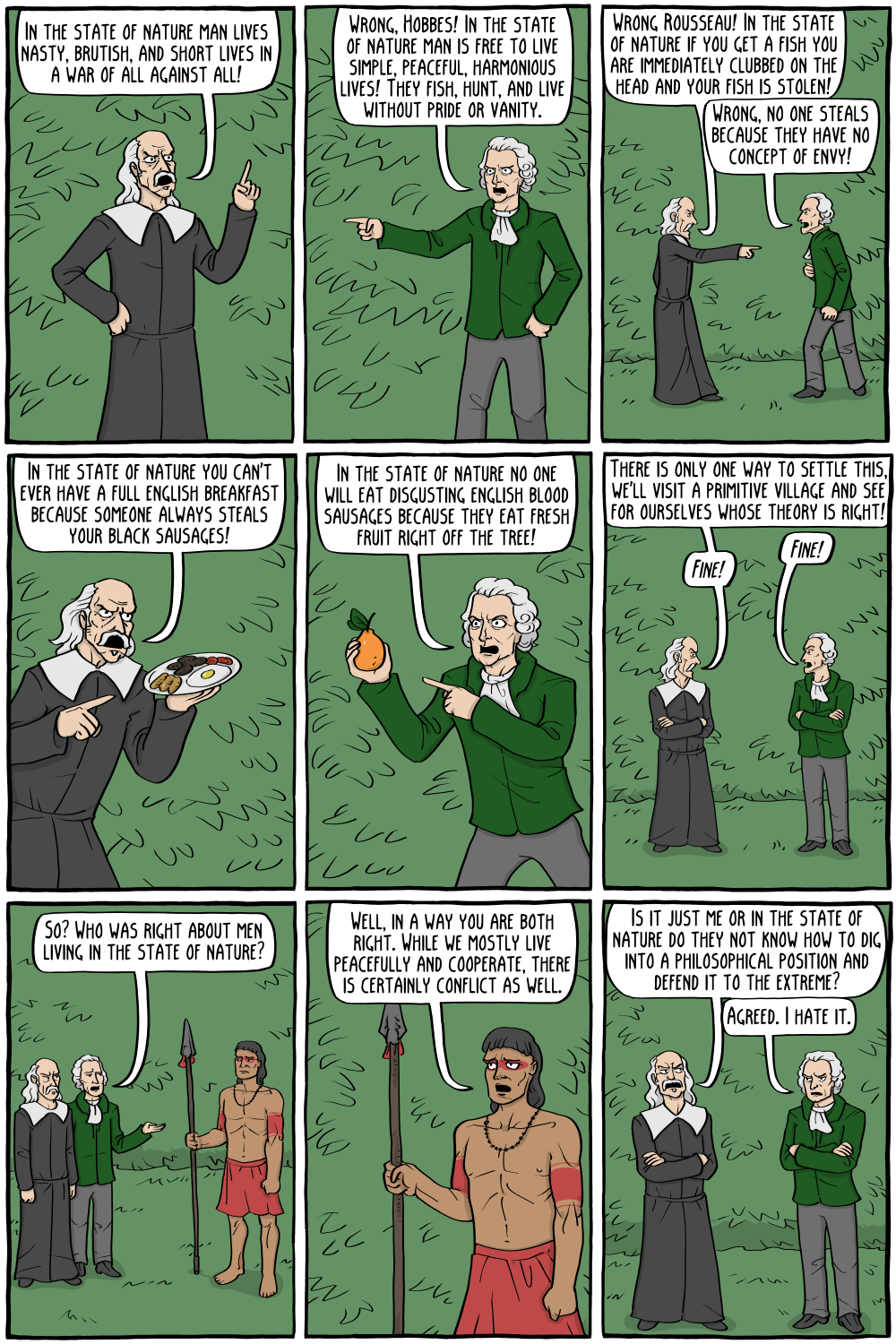Blame for the devolution of the French Revolution into a reign of terror has often been placed on Jean-Jacques Rousseau, specifically his Social Contract, a structuring of society wherein individual citizens cede part of their autonomy for the “general will.” Rousseau’s general will was conceived by him as a distasteful but necessary concession given what society had become: a Hobbesian structure of exploitation by the rich and powerful versus the dispirited situation of the masses. Rousseau was not an advocate of such a state but a prophet of its probable triumph, given the control over daily life and culture he had already discribed and critiqued in the Discourses.
Rousseau’s early works had already generated resentment and opposition across the ruling elites. His books were proscribed by both political and ecclesiastical authorities. In the nineteenth century, laws against blaphemy, let alone against the ideas of a societal alternative to injustice and oppression suggested by Rousseau, were endemic to Europe.Rousseau not only made enemies but lost friends who renounced him for their own safety. He was hounded from his own native Switzerland (where a mob once descended on his house pelting it with rocks), to France, to England. Rousseau returned to France at the behest of a wealthy sympathizer who promised him protection. He returned to Paris, in old age, where he lived in relative obscurity. He no longer held ambitions to popularize his ideas or persuade others. Instead, Rousseau wrote that he wanted nothing do with people, that everyone had become his enemy, that he would rather embrace solitude than put up with anyone from his past.
These remarks Rousseau wrote in a book intended only for himself: Reveries of a Solitary Walker. He wanted to review how he got to solitude. Still intensely consumed by his universal betrayal, the animosity of everyone, he wanted space to reflect on where he was at thisjunction. Naturally, Rousseau sounds bitter. He writes essays around the theme of taking reflective walks, a usefule device, perhaps. But the walks are not relaxing. On the first walk, taken from Paris to its outskirts (not a suburbia then but to the transition point from city to agriculture and wilderness), a reckless carriage hurdling down on him sends him into a ditch, nearly run over. On another walk he goes through a village cheerfully saluting the gaggle of small children curious about the stranger, but mothers and caregivers quickly scramble to bring the kids indoors, staring suspiciously at the walker. Rousseau imagines that they recognize him: it’s another persaonl affront.
The rest of the reveries of his “walks” are increasingly more resentful and bitter, and the device of “walks” drops away. Rousseau wrote ten of these little essays. His interest in botany, not unlike Thoreau’s and Emily Dickinson’s, is refreshing, and occasionally he makes a philosophical remark to brighten his solitude. But the reveries are dark, often self-pitying, and melancholic. Yet Rousseau believed that human nature was essentially good. It was society and other people who ruined it. Or, as a later Frenchman (Sartre) says in his play No Exit: “Hell is other people.”

